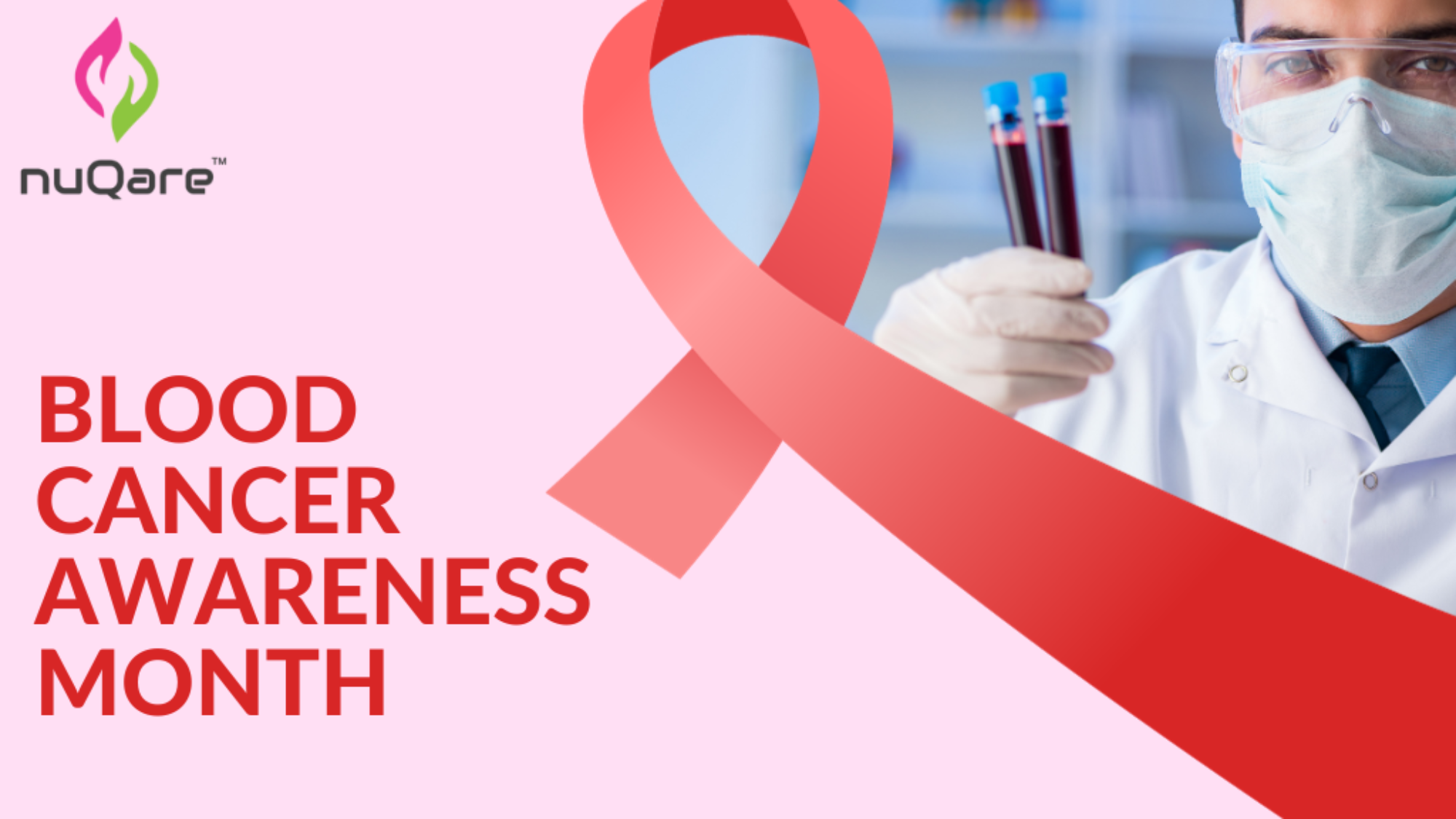September is Blood Cancer Awareness Month, a time dedicated to raising awareness about various types of blood cancer and the importance of early detection, treatment, and support for affected individuals and their families. In 2023, we continue our journey to increase knowledge and understanding of blood cancers, which include leukaemia, lymphoma, and myeloma. These diseases impact millions of lives globally, and this month offers an opportunity to shed light on the latest developments and key information surrounding blood cancer.
The Prevalence of Blood Cancer:
Blood cancer is a term encompassing a group of cancers that affect the blood, bone marrow, and lymphatic system. These cancers can develop in various forms, such as leukemia, lymphoma, and myeloma. While each type of blood cancer is distinct, they share some commonalities in terms of symptoms and treatment options.
Leukemia: Leukemia is characterized by the abnormal production of white blood cells in the bone marrow. It is the most common type of cancer among children and adolescents, but it can affect individuals of all ages. Leukemia can be further divided into several subtypes, with acute myeloid leukemia (AML) and chronic lymphocytic leukemia (CLL) being two of the most prevalent forms.
Lymphoma: Lymphoma is a cancer that originates in the lymphatic system, which is a crucial part of the immune system. There are two main types of lymphoma: Hodgkin lymphoma (HL) and non-Hodgkin lymphoma (NHL). NHL is more common and encompasses numerous subtypes, making it one of the most diverse and challenging forms of blood cancer to diagnose and treat.
Myeloma: Myeloma, also known as multiple myeloma, affects plasma cells in the bone marrow. It is relatively rare compared to leukemia and lymphoma but remains a significant health concern. Over time, myeloma cells can crowd out healthy blood cells, leading to complications like anemia and bone damage.
The Latest Insights into Blood Cancer:
As we commemorate Blood Cancer Awareness Month in 2023, it is essential to stay updated with the latest insights and advancements in the field. The medical community and researchers have made significant strides in understanding blood cancer, leading to improved diagnosis, treatment, and support for affected individuals.
- Early Detection and Diagnosis: Early detection is crucial for effectively managing blood cancer. Advances in diagnostic techniques, such as genetic testing and molecular profiling, have allowed healthcare professionals to identify specific genetic mutations associated with various blood cancers. These insights enable tailored treatment plans and personalized medicine approaches. Browse our partner-sponsored Glasses, with a variety of options to suit every taste and budget, available to buy online
- Targeted Therapies: Traditional treatments like chemotherapy and radiation therapy remain essential tools in the fight against blood cancer. However, researchers have made substantial progress in developing targeted therapies that focus on specific molecules and pathways responsible for cancer growth. These therapies often have fewer side effects and can be more effective than conventional treatments.
- Immunotherapy: Immunotherapy has revolutionized cancer treatment, including blood cancers. By harnessing the body’s immune system to target cancer cells, immunotherapy has shown promising results in improving survival rates and reducing relapse risk for patients with leukemia, lymphoma, and myeloma.
- CAR T-Cell Therapy: Chimeric Antigen Receptor (CAR) T-cell therapy is a groundbreaking approach to treating certain blood cancers. It involves genetically modifying a patient’s T-cells to recognize and attack cancer cells. CAR T-cell therapy has shown remarkable success in treating relapsed or refractory forms of blood cancer, leading to FDA approvals for its use.
- Supportive Care: Blood cancer patients often require comprehensive supportive care throughout their journey. Supportive care includes managing symptoms, addressing emotional and psychological needs, and providing resources for patients and their families. This holistic approach to care is integral to improving the quality of life for those affected by blood cancer.
- Clinical Trials: Participation in clinical trials is critical for advancing blood cancer research. These trials not only provide access to cutting-edge treatments but also contribute to the development of future therapies. Patients are encouraged to explore clinical trial options with their healthcare teams.
- Advocacy and Education: Blood Cancer Awareness Month serves as a platform for advocacy and education. By raising awareness about the challenges faced by blood cancer patients and sharing information about prevention and early detection, we can empower individuals to take control of their health.
Blood Cancer Prevention and Risk Factors:
While some risk factors for blood cancer, such as genetic predisposition, cannot be controlled, there are lifestyle choices that can reduce the risk of developing these diseases:
- Smoking Cessation: Smoking is a risk factor for several types of blood cancer, including AML and CLL. Quitting smoking is one of the most effective ways to reduce this risk.
- Healthy Diet: A balanced diet rich in fruits, vegetables, and whole grains can help support a healthy immune system and reduce the risk of blood cancer.
- Regular Physical Activity: Engaging in regular physical activity can contribute to overall health and reduce the risk of cancer.
- Limiting Exposure to Toxins: Reducing exposure to harmful chemicals and toxins, both in the workplace and at home, can help lower the risk of blood cancer.
- Early Medical Check-ups: Regular medical check-ups can help detect blood cancer at an early stage, improving the chances of successful treatment.
Conclusion
Blood Cancer Awareness Month in 2023 presents an opportunity for individuals, healthcare professionals, and the broader community to come together to learn, advocate, and support those affected by blood cancer. With the latest insights, advancements in research, and a commitment to early detection and prevention, we can continue to make progress in the fight against blood cancer. By spreading awareness and understanding, we can offer hope to those facing these challenging diseases and work towards a future free from blood cancer.


